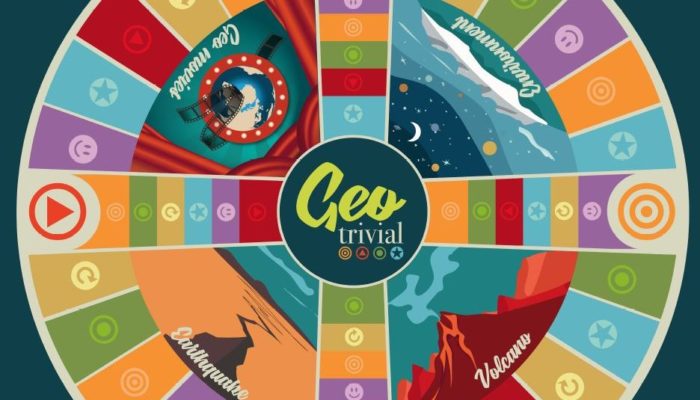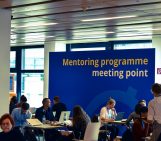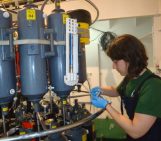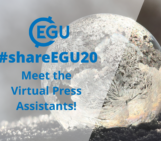
On Wednesday 6 May (6-8pm CEST), the now famous Geoscience Games Night is going to take place on YouTube as a live stream! So, this is the perfect moment to introduce a new scientific game which for many of you, is going to remind you of a game created in the late 70s in Quebec. Yes, I am talking about Trivial Pursuit! But instead of History, Entertainment and Sports questions, creators Valeria Misiti and her team from the Istituto Nazionale di Geofisica e Vulcanologia (Rome, Italy) have developed GEOtrivial Pursuit. After developing an initial game; ‘Escape volcanoes’ which was very successful in schools, they decided to create a new game focused specifically in the Earth Sciences.
This new game was designed for students between 11 and 14 years old, in order to help them to learn more about the Earth sciences through four different categories of questions: ‘earthquakes’, ‘volcanoes’, ‘environment’ and ‘geomovie’s. In GEOtrivial, the graphic design work was carefully and deeply studied to create icons that made sense for the four categories, but also had a familiar connection for people. It took around four months between the idea and the realisation of the game. The resulting game is composed of a familiar, Trivial Pursuit style squared shape billboard representing a wheel with four radius which divides in four parts; a dice; four 3-D printed pawns and a total of 120 questions spread over 30 cards!
The school group that will be testing the game is supposed to already have basic knowledge of the topics of geosciences so the authors hope this game is going to go even further than a normal educational activity, and to help the students respect the inclusion of others with particular learning disabilities and/or special educational needs. “The only message we would like to share is enjoy and hope to have fun!” said lead author Valeria Misiti of what additional benefits they hoped the students would gain.
Playing boardgames is undeniably fun. But it is also now well known that games play an important educational role in both childhood and adulthood as a source of development (Vigotskij, 1981). What researchers are beginning to realise though is that games can actually achieve much more, even be used to increase attention span and help to reduce attention deficit hyperactivity disorder (Elkind, 2007). The GEOtrivial Pursuit game is already finished and the researchers are excited to test it in schools next scholastic year.
———————————————————————————————————————-
You can comment on these materials here, or participate in the live chat for the session EOS4.2 Games for Geoscience on Thurday 7 May, 16:15–18:00 CEST.




